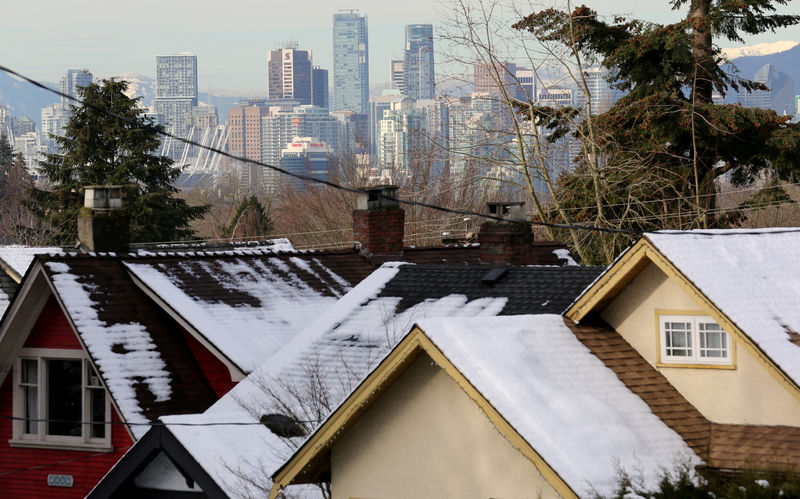By Julie Gordon
VANCOUVER (Reuters) - The British Columbia government will unveil its long-awaited housing strategy on Tuesday, taking aim at skyrocketing real estate prices and soaring rents that have crippled affordability in the West Coast Canadian province, particularly in Vancouver.
The left-leaning New Democratic Party (NDP) came to power last year with a pledge to improve housing affordability and its first full budget is expected to include measures to curb speculative demand, crack down on tax cheats and money laundering, and stabilize housing markets.
Foreign buyers have been largely blamed for Vancouver's red hot property market, where the gap between home values and incomes has widened rapidly in the last five years, hitting levels well above any other major Canadian city, according to data analyzed for Reuters.
This decoupling is heaping pressure on the province to take action. Hundreds of people rallied on Sunday in downtown Vancouver demanding the government move swiftly to bring down home prices. But some experts say it is not easy.
"It's about balancing supply and demand without killing the golden goose," said Andy Yan, director of The City Program at Simon Fraser University, noting British Columbia's finances are dependant on the booming real estate sector, and efforts to cool Vancouver's hot market could hurt less frothy cities.
British Columbia has passed five straight balanced budgets and it is the only Canadian province with a triple-A credit rating from all three international credit rating agencies.
"They're going to need to approach this with a tool kit rather than a magic bullet," said Yan.
Experts anticipate a mix of supply and demand levers in the NDP's new housing policy, including a speculation tax and a widening of Vancouver's foreign buyer tax, introduced by the previous Liberal government in 2016, to include more cities.
The median value of Vancouver homes jumped to 11 times the median household income in 2016, up from a ratio of 9.4 times in 2011, data compiled by Yan show. By comparison, the ratio for Toronto rose to 8.3 in 2016 and was 4.9 for Canada, which is skewed higher by the two cities, while 3 or less is considered affordable.
While Vancouver's empty home tax and restrictions on home-sharing services like Airbnb have helped slow detached home sales, demand for less-expensive condos has become frenzied, prompting some experts to question whether any new policy will be effective.
The Urban Development Institute, which represents developers, has warned the NDP against imposing too many demand curbs, pushing instead for incentives for purpose-built rental units and less red tape to promote more multi-family construction.
But critics say more supply alone will not help, as prices are already out of reach for people who live and work in Vancouver. Some are calling for an outright foreign buyer ban, while others want measures to ensure that global investors who buy through shell companies or local proxies, thus avoiding the foreign buyer tax, are still paying their share.

"Given that China has already restricted a lot of the capital flowing out of their country, I think we'd be better to focus on the money that is already here - that has been parked in our real estate industry," said Brad Barrett, who runs the Facebook (NASDAQ:FB) activist group Vancouver is Falling.